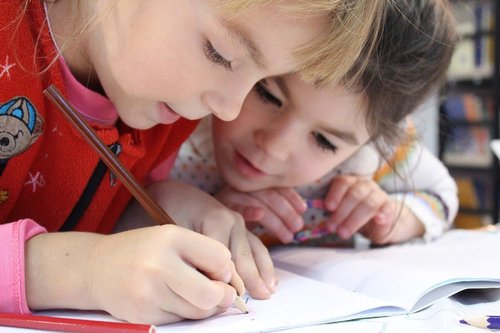ZH article addresses students entering elementary school
Educators celebrated the preliminary decision (immediate and provisional) of the Supreme Federal Court (STF), issued on Wednesday (1st), which prohibits the entry of five-year-old children in the Elementary School of public and private schools in Rio Grande South. There is no retroactive effect, that is, children who have already entered school at that age will not be affected.
In practice, minister Luís Roberto Barroso maintains that the gaucho government cannot decide something that is within the competence and that has already been decided by the federal government. The minister recalls that the Court had already determined that the Ministry of Education (MEC) has constitutional power to decide that only Brazilians who complete six years of age by March 31 of the year of entry enter the first year of elementary school.
The law approved by the Legislative Assembly and sanctioned by Governor Eduardo Leite began to take effect in 2020. The text contradicts the national definition by allowing, without obliging, the enrollment in Elementary School of children who complete six years after March 31 - therefore, releasing entry to the classroom at age five.
The State Attorney General (PGE), responsible for defending the government in court, said on Thursday afternoon (2) that it is analyzing the decision to define the best legal route. The State Department of Education (Seduc) has informed that it will abide by the decision.
There was no pedagogical or legal basis for the proposal, argues Carmen Craidy, a retired teacher of Early Childhood Education at the Federal University of Rio Grande do Sul (UFRGS) and one of the greatest authorities in Rio Grande do Sul on the subject. It celebrates the Supreme Court's decision.
- It is incomprehensible that a state deputy makes a bill that is clearly unconstitutional on a topic that the STF had already pronounced. Let's respect childhood and let the child be happy. If the Fundamentals were more dynamic, it would be relative to argue, but, under the current conditions, with today's plastered education, no. Research has shown that learning before does not necessarily mean learning better. After a certain age, even children who have learned before are assimilated to others - says the educator.
Play and other activities of Early Childhood Education teach and are essential for the child, argues Carolina Velho, Coordinator of Early Childhood Education at MEC in 2018 and 2019 and currently a consultant for the Organization of Ibero-American States (OEI) and Unicef, arm of United Nations for education. She states that the definition of six years as the minimum age to enter school had already been widely discussed and defined by the National Education Council.
- There was this discussion back there and now it's back. The child is not failing to learn because he is not in elementary school. She may even have a stimulus and a cognition about to read at the age of four, but that does not mean that she is emotionally and even physically able to enter Fundamental. If so, are we going to allow a faster learning teenager to enter university at age 14? - asks.
Different understanding adopts Augusto Buchweitz, professor at the School of Health and Life Sciences at the Pontifical Catholic University (PUCRS) and specialist in child development, according to which “there is no scientific evidence that there is any harm to the child who begins the Fundamental with five years ”. He cites France, Norway, Portugal, Spain and the United Kingdom as countries that allow enrollment in the first year before the age of six.
- It doesn't matter if the child enters Elementary School with five, six or seven, what we have to anticipate is working with alphabetical knowledge. That's what will help you read later. Evidence shows that the sooner you start preparing for reading, the better the results. The problem is that this only happens in the nursery and in the private school for the rich, where from an early age there is storytelling and number games - says Buchweitz, who is a researcher at the Brain Institute.
Understand the legal fight
The lawsuit judged by the STF is at the request of the National Confederation of Workers in Educational Establishments (Contee), brought after the Eduardo Leite government embraced a project by state deputy Eric Lins (DEM). - It is unfair for a child who has a birthday on March 31 to go to the first year and another child who does on April 1 does not go - said the parliamentarian.
Piratini approved the proposal: the Deputy Secretary of Education, Ivana Flores, said in a document sent to the Assembly that the change respects the “individuality and maturity of each child”.
The undertaking faced opposition from a large number of educators and legal entities. On the pedagogical side, they were against the State Education Council, the Rio Grande do Sul Private Education Union (Sinepe-RS) and most specialists in the area.
On the legal side, the gaucho law was criticized and considered unconstitutional by the Attorney General's Office (PGR), the Attorney General's Office (AGU) and the State Prosecutor's Office - the latter even recommended that city halls follow the MEC, not Piratini's.
The Supreme Court had already decided, in 2018, that the National Education Council was competent to determine the minimum age for entering school. The agency ruled that Brazilian children needed to be six years old by March 31 to enter the first year of elementary school.
The state government admits that the definition of a minimum age by the MEC has already been tried by the STF, but argues that the defeated thesis lost by just one vote of difference.
————–
INSCRIPTION NOTE:
The researcher at the Brain Institute of RS, Augusto Buchweitz, still makes an addendum to this discussion:
“In order not to encourage controversial speeches, my position does not differ from the concerns of the interviewed educators. The point involves understanding that the discussion of the age of entry, by itself, is harmless. It should come with an understanding of (1) developmental milestones (2) that skills and knowledge we hope to develop in pre-school and elementary school and, more importantly, (3) HOW we hope to develop those skills and knowledge. The discussion goes deeper than simple age. In Finland and countries that are 7 years old, skills and knowledge have been worked on before. Anyway, the discussion is more complex and the learning path with a law will not change ”.



